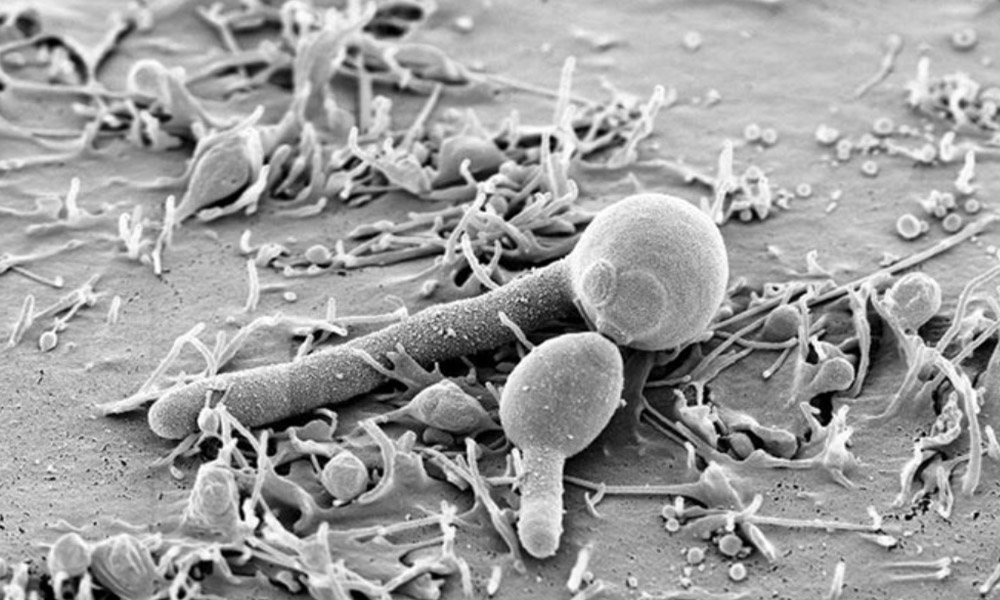Parasites and their impact on health

Parasitic infection – the cause of chronic diseases
Diseases caused by parasitic infections can manifest themselves in different forms, from asymptomatic to serious and life-threatening. Depending on the type and quantity of parasites present in the body, the consequences can range from a constant feeling of fatigue to serious damage to internal organs, tumors, cardiovascular disease and even death.
According to the World Health Organization (WHO), over 4.5 billion people have been infected with parasites over the past 10 years. In Europe, one in three people is infected, while in the United States the infection rate reaches 85-95% of the population. Scientists have found that at the beginning of the 21st century, 95% of people on Earth are hosts to parasites, and among pet owners this percentage is close to 100%.
How do parasites cause chronic diseases?
Parasitic infections tend to develop in a chronic form. According to numerous studies, parasites are often the main cause of diseases considered incurable by traditional medicine, such as:
- Allergies and dermatitis;
- Tumors and cysts;
- Chronic fatigue syndrome;
- Slowly progressive AIDS;
- Chronic infections.
Parasites destroy body tissue, cause inflammation and weaken the immune system. This creates favorable conditions for the development of bacteria, viruses and fungi, aggravating the course of many diseases.
Errors in diagnosis and treatment
When a parasitic infection occurs acutely, doctors often resort to chemotherapy, but the recovery period after such treatment can last months. Often, people are treated for allergies, dermatitis, or even tumors, without knowing that the real cause of their problem is parasites.
In the United States, the case of cyclist David Kelly from San Francisco was documented, who miraculously survived a heavy course of chemotherapy. It was later discovered that the cause of his “dermatitis” were actually mobile nematodes under the skin.
Symptoms of parasitic infections
The signs of a parasitic infection vary between men and women, but there are also common symptoms that should not be ignored.
Symptoms in women
- Inflammation of the ovaries;
- Painful and heavy menstruation;
- Irregular menstrual cycle;
- Fibroma and fibrocystic mastopathy;
- Inflammation of the adrenal glands, bladder and kidneys.
Symptoms in men
- Prostatitis;
- Impotence;
- Prostate adenoma;
- Cystitis;
- Kidney and bladder stones.
General symptoms of parasitic infection
- Skin rashes, pigmentation spots and freckles;
- Frequent headaches;
- Early wrinkles, cracks on the heels;
- Brittle nails;
- Bruxism (grinding of teeth at night);
- Sleep disturbances;
- Frequent colds and immune problems;
- Bronchial asthma;
- Digestive problems: constipation, diarrhea, bloating;
- Joint and muscle pain;
- Allergic reactions;
- Anemia and reduction in hemoglobin levels;
- Chronic tiredness and nervousness.
Why is it important to prevent parasites?
In light of these data, it is clear that many people believe they are healthy, despite obvious symptoms of a parasitic infection. However, without taking preventive measures, the risk of serious complications is high.
Parasitic infections cause 14 million deaths each year, accounting for 25% of the global mortality rate. In other words, one in four people dies from a parasitic infection.
What to do?
Prevention is the most effective way to avoid parasitic infections and related diseases. It is recommended to perform a complete antiparasitic prevention at least once a year.
If you are health conscious and prefer to prevent disease rather than cure it, consult a healthy lifestyle expert. They will help you choose a program to prevent parasites and strengthen the immune system in a safe and natural way.
Don’t put off taking care of your body! Start your journey of prevention and wellness today.